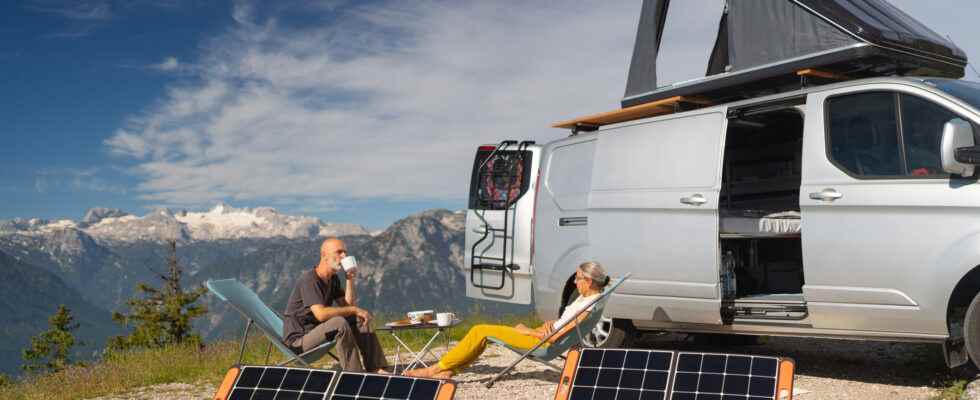When buying a power generator, it is not only important what power requirements you cover and which devices you want to supply. Completely different performance profiles are certainly required on the construction site and in the data center than in your workshop or on a camping trip.
But there are other criteria that you should pay attention to, such as how easy or difficult the starter rope is to pull. Inexpensive generators in particular can produce unpleasant voltage peaks that damage the connected devices. Don’t underestimate the weight either.
We have compiled the most important questions you should think about before buying a power generator here:
1. How much power do you need (performance, device classes)?
The decision for a certain type of power generator depends on which devices you want to supply with it. Common electronic devices can be roughly divided into two classes:
- So-called ohmic loads convert the energy consumed directly into light or heat, including lamps, electric heaters or kettles, for which you should add around 25% power reserve to the continuous load consumption so that no fuse blows.
- Inductive loads are devices equipped with electric motors that draw roughly two to three times their continuous power when starting, such as drills, pumps, compressors, fans. In order to protect all devices, and especially electronic devices, against voltage peaks, inverter power generators are recommended for private consumers.
2. How reliable does the device have to be (fuel, maintenance)?
The issue of generator reliability isn’t just limited to whether the part will start when you need it. It is also important when this moment comes and what needs to be supplied in the event of a power failure.
If, for example, the power grid collapses on a pitch-dark winter night, one delivers Diesel or petrol generator consistently high current as long as the tank is full and is suitable for bridging for several hours. Provided you have remembered to fill the tank, the oil level should be correct and the device should actually start. You should therefore test at least once or twice before the “emergency” to see whether the device is really working, and estimate before you buy how much time, effort and knowledge you need to put into maintenance.
A Solar panel inverter generator with lithium ion power packk is initially useless in the event of a power failure at night if the battery is not charged. However, it can improve your camping holiday with a few conveniences: light, communication and cooling are possible within certain limits and more environmentally friendly than a fuel emergency power generator.
However, the 500 watts of continuous power and 1,000 watts of peak power of cheaper models are by no means sufficient for everything and the maximum power is only achieved as long as it is bright. But: You can fully charge the Powerpack for several hours on sunny days and use the stored electricity as you wish.
3. How easy should it be (operation, spare parts)?
The most powerful generator is of no use to you if its operation requires so much strength or technical skill that you can’t even get it running. Or you are not 100% sure whether you will damage your electronic equipment with the aggregate.
Look for clearly labeled buttons and ports. A detailed operating manual, which can also be read with a flashlight, should always be included with the delivery of even the simplest devices and should be kept with the device in an emergency. Ideally, you can even find out from the manufacturer whether and where you can obtain spare parts and whether you can repair them yourself.
4. Can it rattle and stink (emissions, safety)?
On the construction site and in the workshop, most of those involved with earmuffs shouldn’t really care whether the diesel engine roars at 90, 110 or 131 decibels – like Motörhead used to do. But even on the campsites of many metal festivals there are now quiet zones or green camping, where openly rattling, emitting clouds of exhaust gas or diesel engines are undesirable. Or they are only allowed to run during the day. The same applies to many campsites and also to allotment gardens that are located in or next to residential areas with strict nighttime peace.
If you’re reluctant to handle flammable liquid mixtures that smell foul, stain and tend to replace the air you breathe with deadly carbon monoxide (CO) when they burn indoors, solar panels might be your best new camping buddy.
With devices that draw a lot of current when starting up or that you want to operate in parallel with other devices, you should also make sure not to switch everything on at the same time, otherwise the unit will stutter and it will ultimately remain dark. It also helps if you calculate the total wattage of all devices that you want to connect to the generator before you buy and plan at least 1.5 times the continuous power. So you should be on the (supply) secure side.
5. Does it fit in the luggage (dimensions, weight)?
Do you have a caravan or trailer or are you just traveling with your small car? Does the tent in your hiking backpack already take up too much space on a camping/tramping trip and your clothes weigh a few kilos? Can you get your partner, child or friend to step in as a carrier of the aggregate? No? Oh. Then you should perhaps be careful not to strain your packing capacities too much when choosing the power generator.
